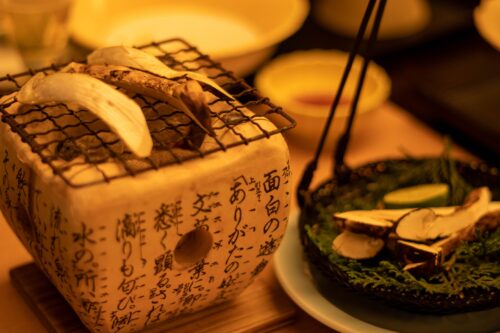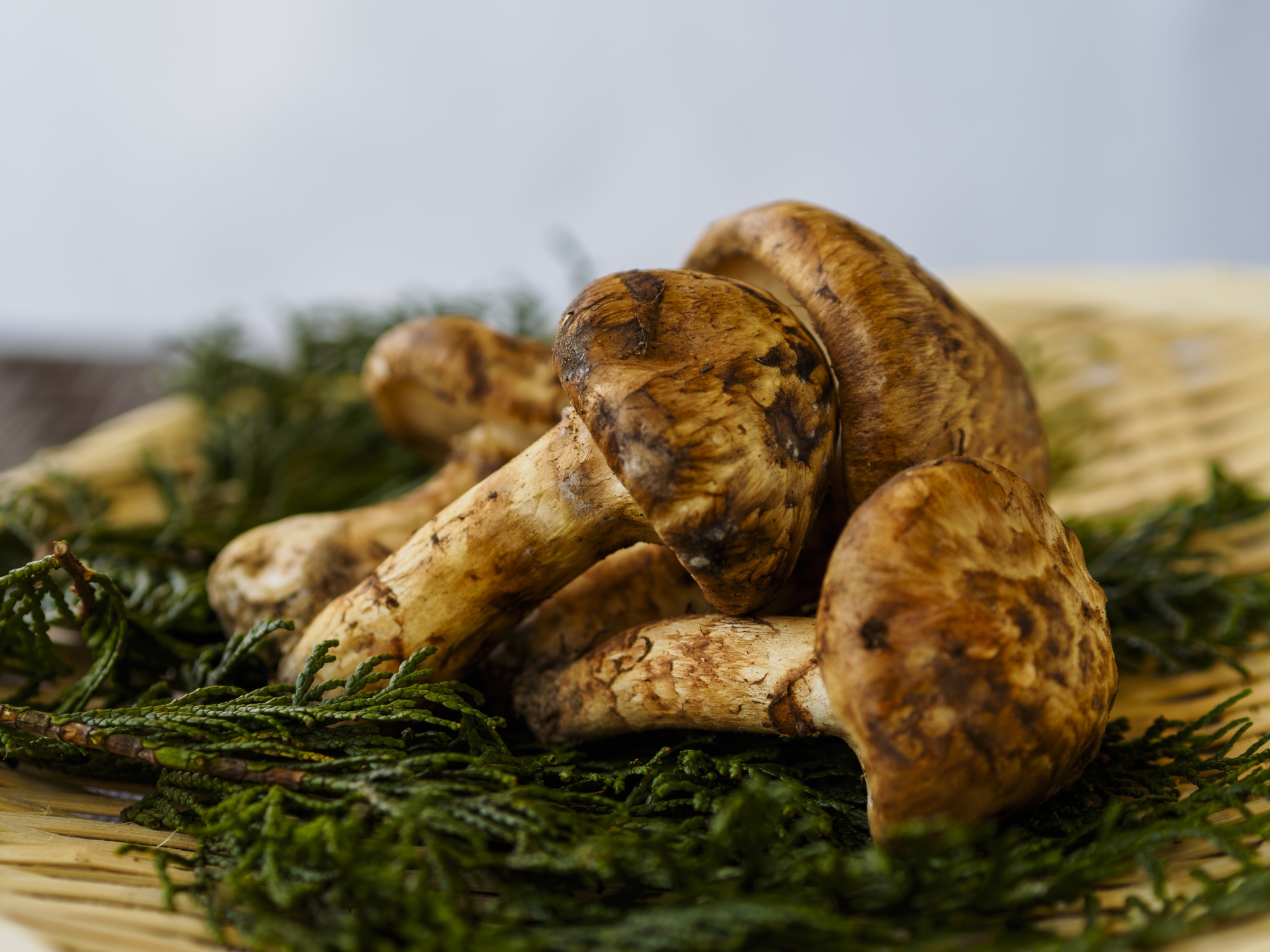The $300 socks: Why Japan’s king of mushrooms is despised overseas
Do you know what the “King of Mushrooms” is in Japan? It is definitely the pine mushroom, known as “Matsutake.” Since Matsutake cannot be cultivated, it is extremely expensive. Last year (2022) was a terrible harvest, and it made the news when the retail price of a single piece of Matsutake exceeded $300 USD!
Funnily enough, Matsutake is popular only here. It’s said that in European countries, it smells like dirty socks. But perhaps this is just a matter of cultural acclimatization. For example, truffles are hailed as the “jewels of the forest” in Europe, but to my nose, they smell uncomfortably like gasoline.
In fact, Japan is the second-biggest consumer of mushrooms globally, just behind China. It seems we Japanese eat a lot of mushrooms, but perhaps we don’t know as much about them as we should. Many believe they are strictly seasonal food of autumn (which is why I’m writing this in October). I certainly believed that before I got interested in mushroom picking, but most fungi can actually grow in any season if the temperature and moisture are right. Today, let’s dive into the strange world of Japanese mushrooms.
The 4,000-Year-Old risk: A long history of eating wild fungi
Our history with fungi is long and deep. In this region, mushroom-shaped earthenware was found, estimated to have been made around 4,000 years ago, long before the establishment of Japan as a nation. The oldest written record about mushrooms is probably in Japan’s oldest anthology, compiled in the first half of the 7th century, featuring a poem that mentions Matsutake to express the joy of autumn’s arrival.
This suggests that people in Japan have been picking and eating mushrooms for at least 1,300 years, and likely much longer—probably at the cost of a great many lives due to poisonous varieties.

The aggressive killers: Why poisonous mushrooms break the rules of nature
As I recently learned, the exact reason why some mushrooms possess deadly toxins remains somewhat a mystery. Generally, plants and animals use poison for defense against predators, and thus often feature warning colors. For the poison to be effective, it stands to reason it should be fast-acting. Otherwise, the predator might die later without realizing what killed it, failing the evolutionary purpose.
Strangely, there are many poisonous mushrooms without warning colors, and their poison is often slow-acting. Some researchers hypothesize that these poisonous fungi seem to be trying to aggressively kill their predators—rather than just defending themselves—in order to supply nourishment back into the soil.
The last mushroom frontier: Unpicked bounty in Hokkaido
Due to the bizarre and often slow-acting nature of poisonous mushrooms, many Japanese people are rightly frightened and hesitate to pick any not-well-known fungi, let alone engage in general mushroom picking. This leaves the activity to people with a rare combination of inquiring minds and a high-risk appetite—like the strange specimen known as myself.
Here in Hokkaido, it seems that almost the only mushroom people pick are “Larch Boletes,” leaving countless other edible varieties untouched. For instance, Hokkaido is the only region in Japan with colonies of white birch trees, so we can find many “Birch Boletes” everywhere. Yet, nobody picks them. When I forage for Birch Boletes in my nearby park, I often get stares that scream: “Are you serious about eating that?“
This abundance of mushrooms is clear evidence that Hokkaido’s forests are flourishing and healthy. Mushrooms and trees live together in a symbiotic relationship. Crucially, most mainland Japanese forests consist mainly of soft-wood trees, whereas Hokkaido forests are a rich mixture of soft- and hard-wood trees. This biodiversity is why you can find a wider variety of mushrooms, and it is also the fundamental reason why Hokkaido is such a prime production area for high-quality wooden furniture.
As I stand in my neighborhood park, gathering Birch Boletes while enduring the pitying stares of passersby who clearly think I’ve finally lost my mind, I am reminded of a simple truth: the most precious treasures are often mistaken for ‘dirty socks’ or ‘poison’ by the uninitiated. My neighbors see a man flirting with a slow-acting death; I see the rich, biological bounty of Hokkaido. This same spirit of ‘rational madness’—the desire to find beauty where others see only risk or absurdity—is exactly why we created the Hatsune Miku Art Chair. To a casual observer, it’s a startling fusion of ancient timber and digital pop; to those with an inquiring mind, it is a symbiotic masterpiece. Don’t be the person staring from a safe distance—be the one brave enough to embrace the strange and bring a piece of Hokkaido’s flourishing forest (and a digital soul) into your home. I promise, unlike my mushrooms, this chair won’t require a call to poison control. —— The Hatsune Miku Art Chair.


Shungo Ijima
Global Connector | Reformed Bureaucrat | Professional Over-Thinker
After years of navigating the rigid hallways of Japan’s Ministry of Finance and surviving an MBA, he made a life-changing realization: spreadsheets are soulless, and wood has much better stories to tell.
Currently an Executive at CondeHouse, he travels the world decoding the “hidden DNA” of Japanese culture—though, in his travels, he’s becoming increasingly more skilled at decoding how to find the cheapest hotels than actual cultural mysteries.
He has a peculiar talent for finding deep philosophical meaning in things most people ignore as meaningless (and to be fair, they are often actually meaningless). He doesn’t just sell furniture; he’s on a mission to explain Japan to the world, one intellectually over-analyzed observation at a time. He writes for the curious, the skeptical, and anyone who suspects that a chair might actually be a manifesto in disguise.
Follow his journey as he bridges the gap between high-finance logic and the chaotic art of living!

